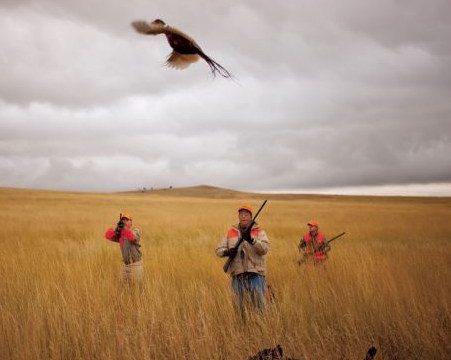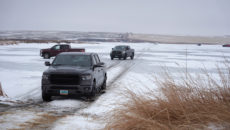Dorso Column: Outdoor Heritage Fund Will Restrict Land Use

As I write this I am reminded how much I enjoyed the North Dakota outdoors. From hunting for Mule Deer around Hettinger to shooting ducks over decoys near Finley I had some wonderful times. Walking the hills near Beach for sharp tails or watching my dog retrieve pheasants down at Hague I and my boys loved being outdoors.
There weren’t any more painful votes that I cast as a legislator then those dealing with hunting and landowner’s rights. We watched as the out of state hunters who had the money leased up the wetlands that we had hunted freely. Then the bills to allow more hunting days for the out of staters were introduced in the name of economic development. As the pheasants became plentiful on the CRP land the same saga unfolded. The landowners and guides wanted to make land access to hunters more difficult so they could hold those birds for paying customers.
Have you ever noticed that the ducks and geese concentrate on posted land where there is no hunting pressure? The same can be said of pheasants. As a dad my biggest frustration was telling my boys just because we saw a lot of birds in a field didn’t mean we could hunt there.
Those days are behind me. I don’t come to North Dakota to hunt. I find your laws so restrictive that I prefer to go to Montana where my opportunities are better.
All of the above does not make me a supporter of the North Dakota Outdoor Heritage Fund.
I remember the battles we had over the Cross Ranch and the Audubon controversy surrounding wetland mitigation for Garrison Diversion. Bottom line on both were the effect leasing or buying land for none agricultural purposes would have on land values and political sub-division tax bases. I can for see the day when the Heritage Fund will suffer the same criticism. I will probably happen fairly quickly because 30 million is a lot of money every two years for the leasing of land.
I can certainly understand the legislature’s tendency to want to get ahead of initiated measures. Most of the time these measures tie the hands of the legislature and are difficult to modify if they don’t work out as advertised. In this case I think there were some other strategies that would have satisfied the proponent’s wishes without so dramatic of a commitment of general fund revenue.
I agree with Rob about the makeup of the advisory committee. First I’ve never seen a committee that large that is effective. Second naming any advocacy group to a committee is trouble looking for a place to happen. Reading the recent news about the student representation on the Board of Higher Education is a case in point.
Second why the Industrial Commission, haven’t they got enough on their plate with oil and gas? I would have preferred to see the advisory committee come to the legislature with an action plan every two years. Appearing before the Natural Resources Committees of the House and Senate and then being reviewed by the Appropriation Committees of both houses would have given ample opportunity for citizen input. It would have also assured that if oil and gas revenue falls off that adjustments could be made to the overall spending picture.
I don’t understand why a legislative body would dedicate money to a scheme such as this. Even if I would have liked the proposal, in my time we would have never given up this much authority over that kind of money. I’m even wondering if it is right that general fund revenue is dedicated to a non- legislative group. Of course I’ve often wondered how the legislature let the higher education round table come into existence. We have seen where that initiative has gotten us.
There are ways to provide for the hunting and other outdoor experiences that so many North Dakotans love. I just don’t think this was one of them. Rather than react to a threat of what might have been, the legislature should have developed away to put a well reasoned program together.
Hopefully in the next legislative session some creative thinking goes into an alternative that will serve the people of North Dakota. At this point the legislature has enacted a bill that they can modify as they find a better way to manage these resources.







